Help! My Dog is Aggressive Towards Visitors
We love our dogs, but sometimes their behavior can be problematic. That’s especially true when you find yourself thinking, ‘My dog is aggressive towards visitors.’
Disconcerting as that is for your guests, it’s probably upsetting for your dog, too.
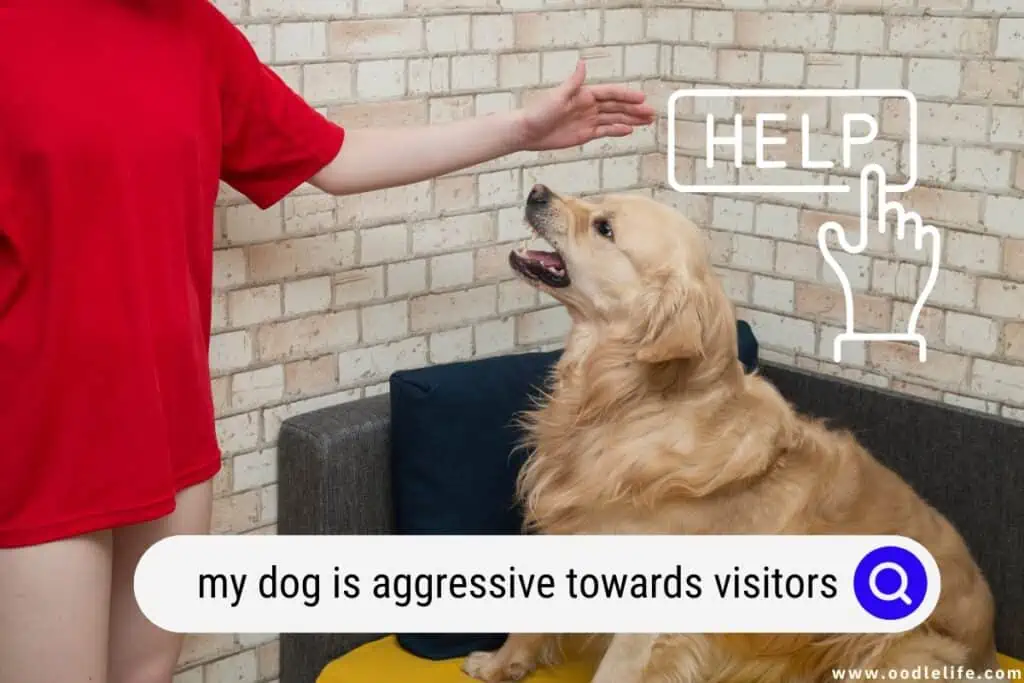
But to understand how to manage aggressive canine behavior, first, you need to know what causes it.
Help! My Dog Is Aggressive Towards Visitors: What Can I Do?
Several factors can cause a dog to express aggression. Knowing what’s behind your dog’s animosity towards visitors can help you discourage it in the future.
Fight or Flight Instinct
Sometimes, a normally-friendly dog bares its teeth at visitors.
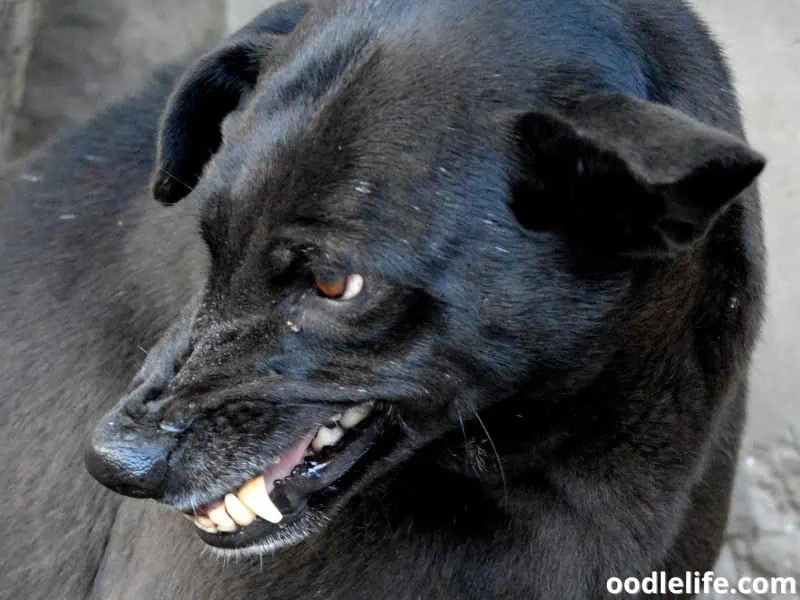
If that’s not normal, your dog may not have set out to snarl or snap. Instead, something triggered their fight-or-flight instinct.
Dogs can be hyper-vigilant, and when they sense a threat they react one of two ways. They bolt, or they display dominance. For the human on the receiving end of that dominant behavior, it can feel aggressive.
Dogs that aren’t usually aggressive may be spooked or startled by:
- Feeling cornered
- Sudden movements
- Presence of another dog
- Loud noises
Anxiety and Trauma
If you find yourself thinking, ‘My dog is aggressive towards visitors’ on a routine basis, they may suffer from anxiety.

Like people, dogs can become anxious or stressed. But because they have no outlet for those feelings, they manifest as misdirected aggression.
Other signs of anxiety include:
- Whining/barking
- Circling/pacing
- Inappropriate elimination
- Destructive behavior/ chewing inappropriately
Another thing that’s worth knowing is that dogs remember their traumas. That’s particularly pertinent to rescue dog owners, who may not have access to the full history of their pet.
When your dog feels a trauma may recur, they react the way they originally did. Depending on the dog, that may be fear, but it may also be aggression.
Protective Behavior
However, sometimes the answer to ‘Why does my dog act aggressively towards visitors’ is less complicated than that.
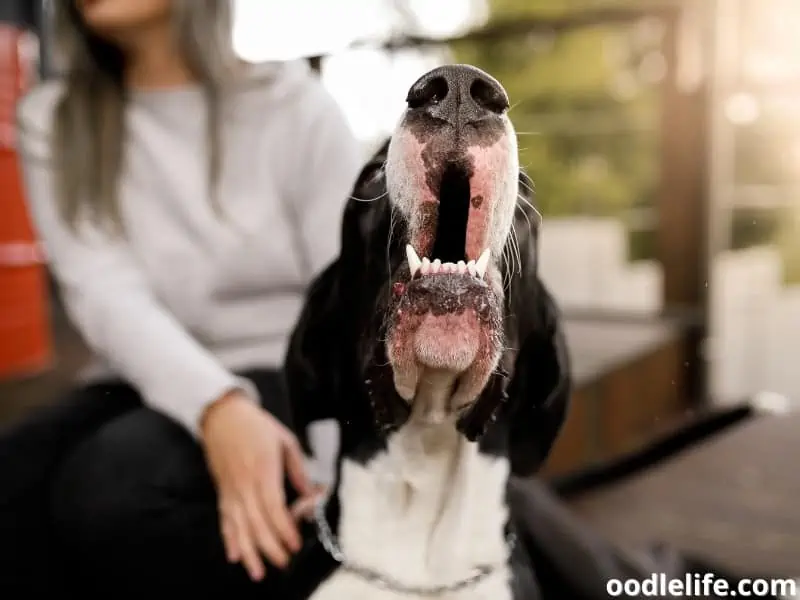
Dogs are pack animals by nature, and many breeds demonstrate a strong sense of loyalty to their owners.
One of the ways dogs exhibit that loyalty is by protecting their owners. If they sense a threat to you, they can often react with misguided aggression.
Interestingly, what your dog perceives as a threat may differ from your understanding of one. Fascinatingly, because laughter doesn’t feature in canine life, they don’t understand how to process it.
They can distinguish positive and negative human emotions but may misconstrue boisterous laughter as threatening and react appropriately, at least from their perspective.
Resource Guarding
In a similar vein, some dogs are prone to resource guarding.
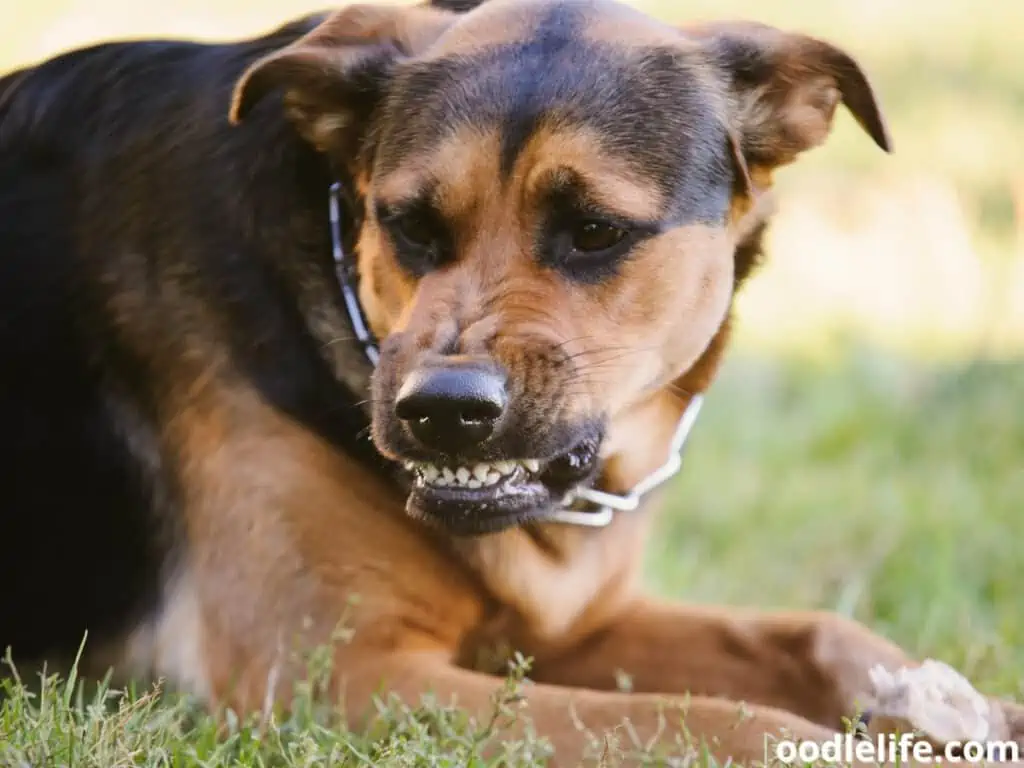
Resource guarding typically gets performed around food or a favorite toy. When that happens, the dog enacting it becomes increasingly possessive, often threatening perceived ‘risks’ to the thing under their protection.
Resource guarding includes actions like:
- Lunging
- Growling
- Snarling
- Snapping
It’s typical of rescue dogs, who may have had to hoard food or protect families. And when done to a toy, it can be deceptively charming for the first five minutes. After that, it’s time to intervene.
That’s doubly true if the resource your dog decides to guard is you because it makes it challenging for anyone, including the rest of the family to enjoy your attention without an anxious and aggressive dog intervening.
How to Minimize Aggressive Behavior Towards Visitors?
So, that’s why your dog acts aggressively towards visitors. But what can you do about it?
Tell Visitors to Ignore the Dog
If you often find yourself apologizing with phrases like, ‘I’m sorry, my dog is aggressive towards visitors,’ this step can be counterintuitive.
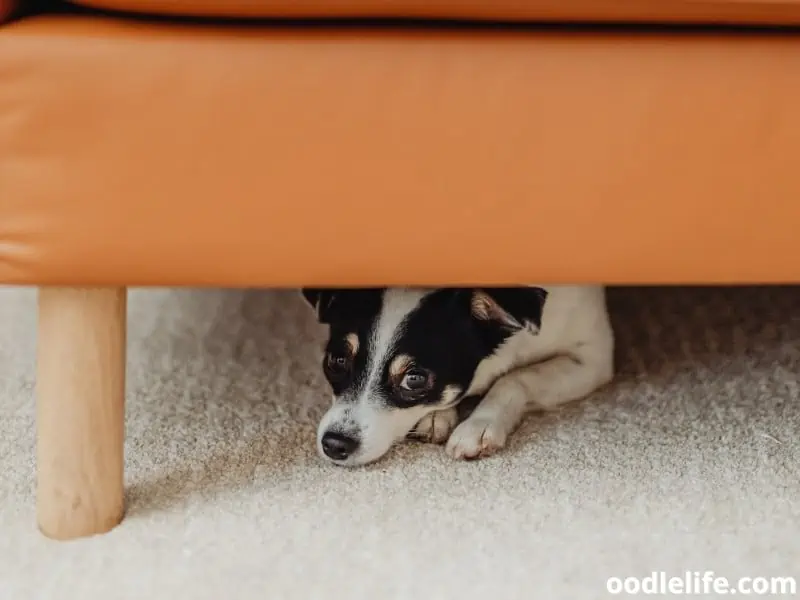
But ignoring a dog is the key not only to a less aggressive canine but to a calmer one, too. Dogs become excited by sounds like knockers and doorbells. Their instinct is to call your attention to it.
That doesn’t subside just because the person enters the house.
Difficult as it may seem, the best thing an incoming guest can do is ignore the dog, even going as far as to stand with their back to them.
Crate Your Dog
Depending on the aggression your dog displays, crating them before people arrive can also be helpful.
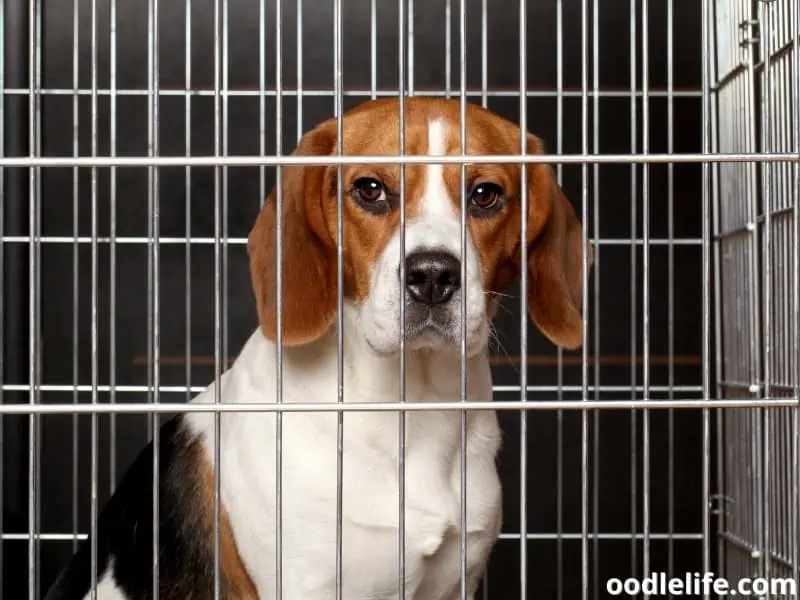
You should still minimize dog-people interactions at this stage. But one reason dogs bark is because they feel stressed.
A crate is a safe place for your dog. Keeping them there until guests settle can help them adjust to the change in their environment.
Socialize Your Dog
This also sounds counterintuitive when training an aggressive dog. But socializing your dog with other pets, people and animals is one of the best ways to teach acceptable behavior.

Other animals are especially good at setting clear boundaries and teaching habits like biting inhibition. That gives your dog context for how to behave in a social setting. The younger the dog and the more socialized they are, the less aggressive they are toward strangers.
Ideally, a growing dog should meet and socialize with:
- Other dogs
- Cats
- Children
- Other people
Consistent Training
If you inherit an older, instinctually aggressive dog, walking to the dog park isn’t an option. It puts undue stress on your dog and the people and pets around them.
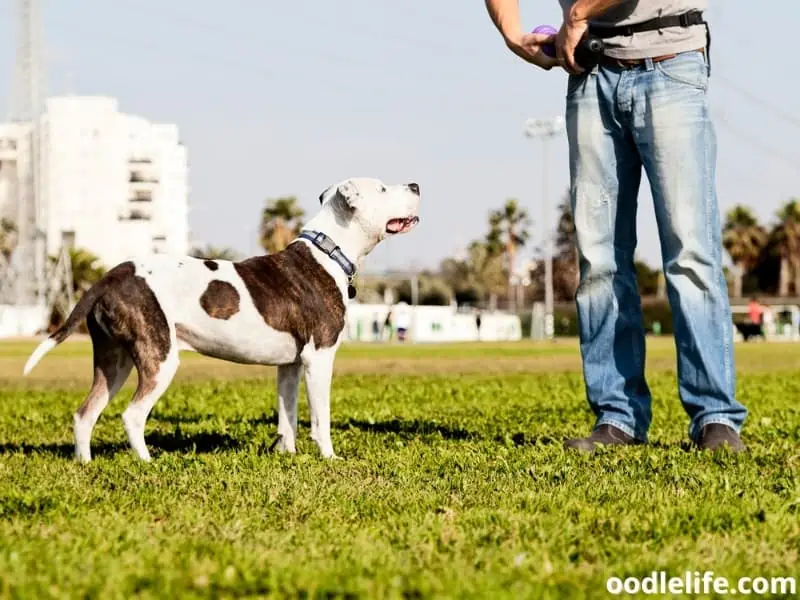
In that scenario, the best way to curb behavior that has you saying, ‘My dog is aggressive towards visitors’ is to implement a routine training regime. Whether you do this yourself or hire a professional is a matter of choice.
What matters is that you start giving your dog simple, comprehensive commands that curb their behavior and put you in charge.
Commands such as ‘Sit,’ ‘Stay,’ ‘Come,’ and ‘Drop it’ make an excellent place to start because dogs pick them up quickly.
Always avoid negative reinforcement. If your dog is anxious by nature, that will reinforce their anxiety and escalate the aggression. Instead, focus on positive feedback, like treats, to encourage the behavior you want from your dog.
Should Visitors Feed the Dog?
That would be the natural conclusion to draw. But if your dog is aggressive towards visitors, you want to avoid this scenario.
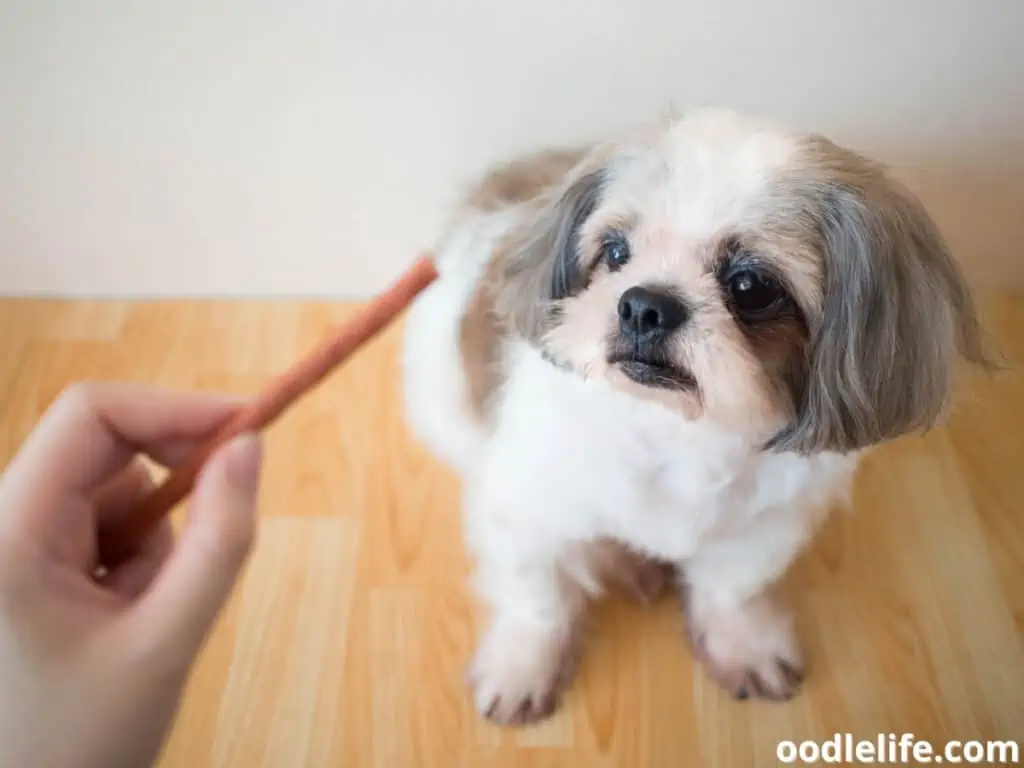
Like preemptively socializing a dog, encouraging an instinctively aggressive dog to accept treats from strangers can be stressful. It risks unprovoked biting and can exacerbate your dog’s aggression.
One of the primary reasons dogs play up in these situations is that they panic and forget they can leave. If you still want to foster the positive link between your guests and treats, you can break this cycle by having visitors throw treats several feet off.
That gives your dog the positive association of food and reminds them they aren’t cornered. It also helps break a fight-or-flight reaction.
When to be Concerned by My Dog’s Aggression Towards Guests?
No one likes to admit their dog expresses problematic behavior. But sometimes it’s necessary.
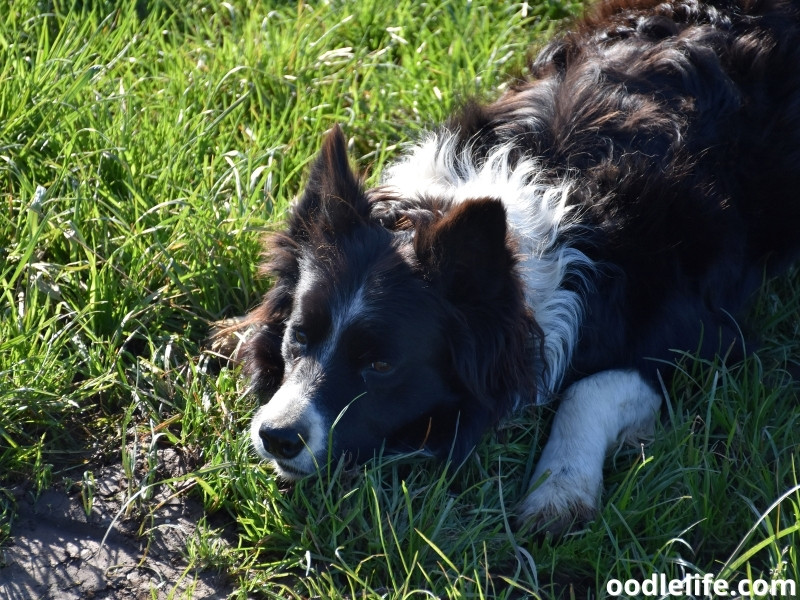
Time and patience cure most canine aggression disorders. But if you become afraid for your guests, it’s time to seek professional help. That means isolating your dog from your company if you think there’s a risk they will bite or attack anyone.
Final Thoughts
When you find yourself thinking, ‘My dog is aggressive towards strangers,’ always start by diagnosing the cause of the behavior.
How you treat an anxious dog is not the same way you work with a dominant or possessive dog.
While a persistent and patient owner can manage canine aggression on their own, there’s no shame in hiring a professional trainer, either. What matters is that you find a way to help your dog feel safe and comfortable enough to enjoy visitors, not terrorize them. How you get there doesn’t matter.